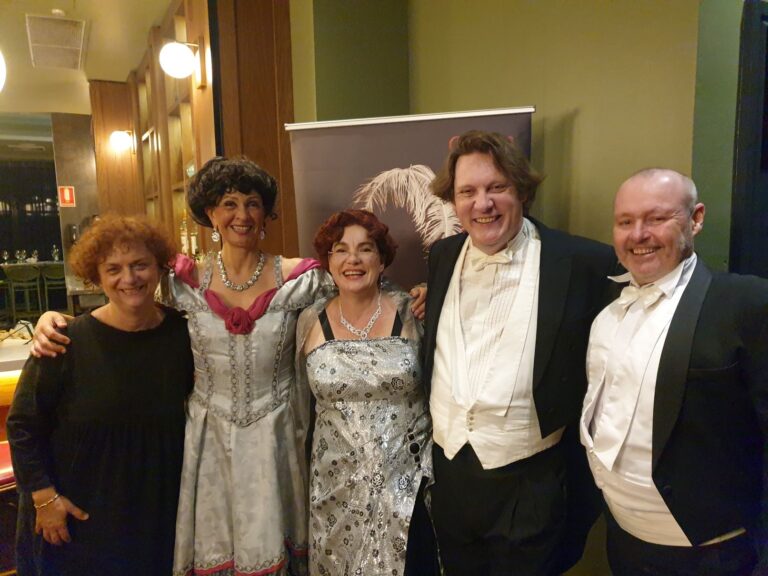
The day of the false Soviet consul
Sydneysider: A personal journey
One day, in 1987, I didn’t meet the Soviet Consul.
I was, at the time, the chief guide at the Australian Museum, the august natural history and anthropology institution on the corner of William and College streets. Shortly after I arrived at work, the Museum’s Director, Des Griffin, called me to his vast and stately office. He’d been rung by the new Soviet Consul. The man was, evidently, deeply interested in museums and their administration. Des had promised a special tour of the Museum, and would have conducted it himself, but urgent business called him away so I must stand in. A package of relevant information had been specially prepared for the Consul and it had been left at the security desk at the William St entrance where the Consul had been asked to present himself.
Oh, and Crown Prince Akihito of Japan (a distinguished ichthyologist and a research associate of the Museum, these days serving as Emperor) would also be dropping in at the desk to pick up a package of scientific papers. Could I ensure that he got them?
Sensibly, Des suggested I should also warn the guide on duty at the front College St entrance that the Soviet Consul might turn up there by mistake. Des was always sensible before lunch, so I did as I was told.
Consular personages did not overawe me. As a taxi driver I’d once happily sung Juan Talavera with the Cuban consul; as a National Parks ranger I’d single-handedly faced-down the blustering West German Consul when he tried to sneak a whole convoy of Mercs into Neilson Park on Sydney-Hobart Yacht Race day. “You vil understand, I am only following orders,” I said coldly, from behind my Ray Bans. He left, but he wasn’t pleased.
At the appointed hour, the guide at the front entrance rang to say that the Soviet Consul had arrived. I hurried upstairs and was introduced to a thirtyish man of north-east Asian appearance wearing a snappy business suit. Hmmm, I thought, must be from the USSR’s eastern provinces.
Of course this was during Mikhail Gorbachev’s shining ‘glasnost’ era, so I figured that the new Consul was probably some rapidly-promoted bright boy from an east Asian minority – maybe he was a Manchurian … Manchurian … Manchurian candidate. Where did that thought come from?
I shook hands warmly and asked him what he would most like to see. The answer wasn’t helpful. His English wasn’t great, which surprised me a little, but, I thought, consuls have expert translators to call on so maybe his limited proficiency was, under the circumstances, understandable.
So I took my distinguished guest around the public galleries, elucidating, slowly, and in the simplest English I could muster, the socially educative purpose of each while trying, gently, to prise out of him his special interest in the role of museums –all the while slipping into my narrative what ought to have been easily detected Marxist theoretical references. His responses, vaguely grasped through the language barrier, were profoundly disorientating. I’d been led to expect a lucid interchange on museum theory and practice, but my interlocutor seemed to know nothing much at all.
After half an hour it struck me that there might be a monstrous misunderstanding. I asked the man, point-blank, who he was. It turned out he was just a guy who worked for Telstra. He was doing an MBA course on public and business administration and his study group had chosen the Australian Museum as a case study. No-one else from the group has shown up. Their assignment was due in a few days.
Panic set in. Holy Mother of Darwin, where was the real Soviet Consul? My personal international diplomatic assignment was disintegrating around me.
I terminated the Telstra bloke’s tour as quickly and elegantly as I could, took him back to the front desk, told the hapless guide who’d given me the bum steer to round up some basic museum info for him, and hightailed it to the William St desk.
It seemed the Soviet Consul had arrived 15 minutes late. When I couldn’t be located (this was before mobile phones and I didn’t have a pager), they’d apologised profusely, handed him the package the Director had prepared and he’d diplomatically taken his leave. Trouble was, they’d mistakenly given him he package meant for the Crown Prince of Japan.
Disaster was complete. In my mind’s eye, I could see the Consul puzzling over a set of obscure scientific papers concerning the Crown Prince’s special interest – the taxonomy of the Gobiidae, a family of freshwater and marine rayfinned fish belonging to the order Perciformes. Even worse, the Crown Prince, arriving later, had been given the Soviet Consul’s envelope.
I don’t think I ever told the Director what happened. Wars have happened over less.









